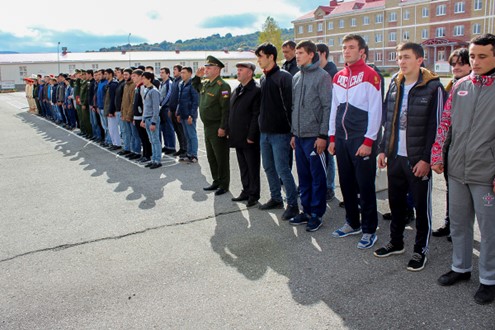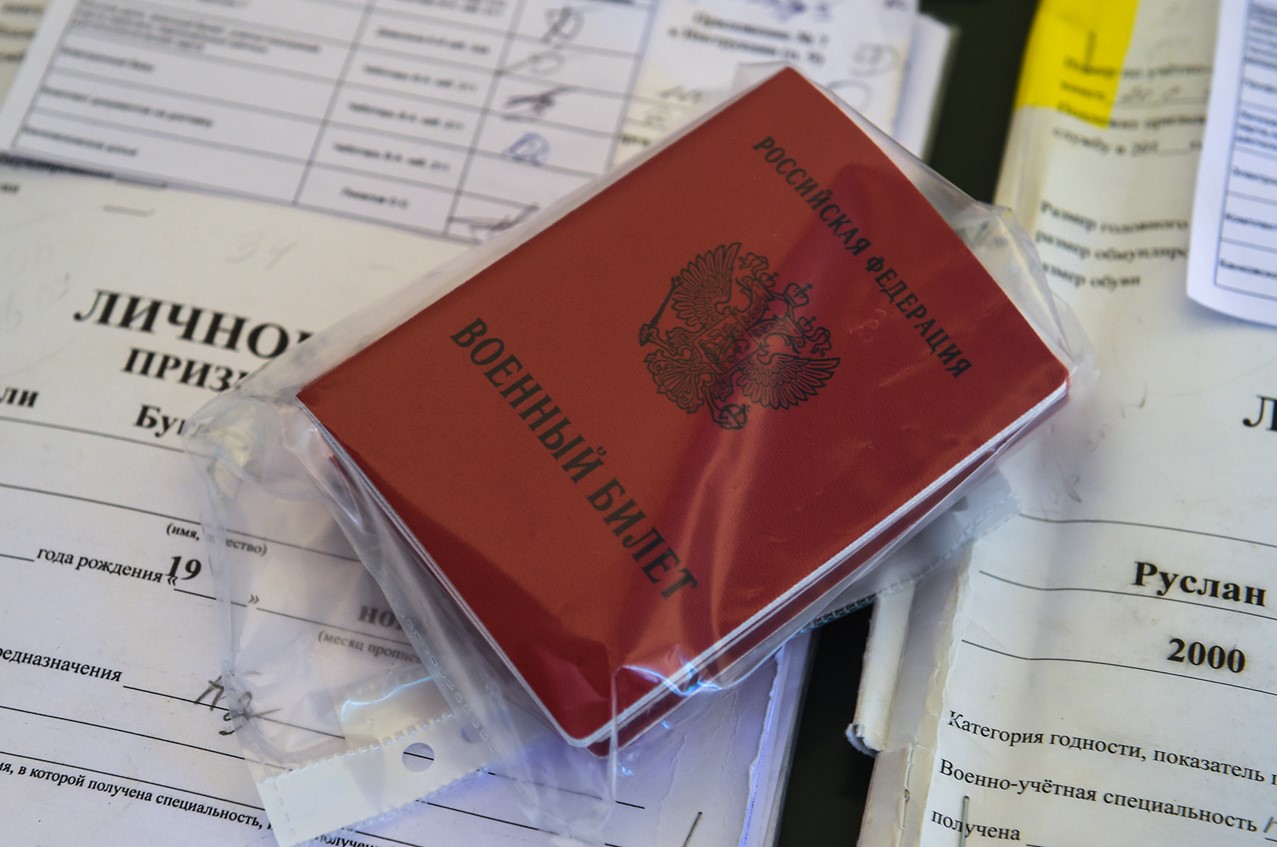
Conscripts being inducted for military service.

Military document issued to new conscripts.
“Against the backdrop of a special military operation (SMO), State Duma deputies have raised the issue of increasing military service to two years.”
The accompanying excerpted article from the pro-Kremlin daily newspaper, Izvestiya, discusses the possibility of Russia extending the mandatory military conscription period from one to two years.[i] This change, in conjunction with the Russian military’s absorption of the separatist forces from Luhansk and Donetsk, will likely result in the Russian military adding more than 300,000 personnel to its ranks. In addition, a two-year conscription period will also likely lead to an overall qualitative improvement in Russian military capabilities because, according to Russian commanders, a one-year term of service for conscripts is too short for them to become fully combat capable. For this reason, Russia employs conscript-manned battalions and contract-manned battalions that have abbreviated training schedules for the conscript units.[ii] A change to a two-year conscription model will likely allow conscript units to be trained on the same schedule as their contract brethren.
Source:
Maria Shaipova, “Два против одного: в России обсуждают увеличение срока службы в армии (Two Against One: In Russia They Are Discussing an Increase to The Length of Military Service),” Izvestiya (Pro-Kremlin daily newspaper), 3 November 2022.
Against the backdrop of a special military operation (SMO), State Duma deputies have raised the issue of increasing military service to two years. The Kremlin says that these issues should be resolved in the Ministry of Defense. What will be the term of service in the army in 2023, as well as how the conditions for recruits have changed?
Yury Shvytkin, Deputy Chairman of the State Duma Committee on Defense, announced on November 3 that he would return to two-year service against the backdrop of the SMO. According to him, this is due to the need to securely consolidate the knowledge the conscripts gain during military training. The idea was supported by State Duma deputy from Crimea, Mikhail Sheremet. He did not rule out that the corresponding initiative could be submitted for consideration by the deputies of the State Duma.
However, the Federation Council questioned the need to return to the two-year system. According to Andrey Klishas, the head of the Federation Council committee on constitutional legislation and state building, the number of contract servicemen affects the combat capability of the army. And an increase in conscription service is unlikely to significantly affect the quality of the troops. Both the senators and the press secretary of the President of Russia Dmitry Peskov said that the opinion of the head of the Ministry of Defense will be decisive in regard to the term of service in 2023…
Currently, the term of service in the army is 12 months for all branches of service. The call is held twice a year: from April 1 to July 15 and from October 1 to December 31…As emphasized by the Ministry of Defense, the recruits of the autumn draft-2022 will not be sent to the SMO zone or serve in the newly annexed territories…The term of service in the Russian army was reduced from two to one year in 2008, in parallel with this, the troops were reoriented to the contract method of manning. A transitional period was established, and some of the conscripts served 18 months from 2007 to 2008…During the period of military reform in the country, the total size of the army was reduced to 1 million people, while the proportion of conscripts decreased, and the number of contract soldiers increased.
The transition to a voluntary (contract) principle of manning the Russian army has been discussed since the early 1990s. In 1992, it was supported by the Supreme Council and the President of the Russian Federation, but the Ministry of Defense insisted on maintaining the conscription service. As a result, in 2003, it was decided to equip individual units and branches of the Armed Forces, as well as Border Troops, also with contract troops. For the Internal Troops (MVD-VV), it was decided to maintain conscription, but to reduce the term of service.
Notes:
[i] Russian military conscription dates to Peter the Great (1672-1725), when the selected individuals served for life. From 1874, the entire male population of the country over the age of 21 was subject to conscription with a term of 15 years, six on active duty and nine years in the reserve. By the beginning of the 1900s, the term of service in the Ground Forces was reduced to three or four years, while in the Navy, it was five years. During World War Two (Great Patriotic War), the entire Russian population was considered “mobilized.” In 1967, conscripts began to serve two years in the Ground Forces and three years in the Navy. In 1993, the term of service was reduced to one-and-half years but raised to two years in 1996 amid the first Chechen War. Since 2008, Russia has practiced a one-year conscription period.
[ii] By regulation, most Russian Ground Forces maneuver (motorized rifle or tank) units (regiments or brigades) are required to maintain two battalion tactical groups that are fully manned with contract soldiers. Since motorized rifle units have three motorized rifle battalions and one tank battalion, the third motorized rifle battalion is manned with conscript soldiers and is sometimes colloquially referred to as a “reserve” battalion.
